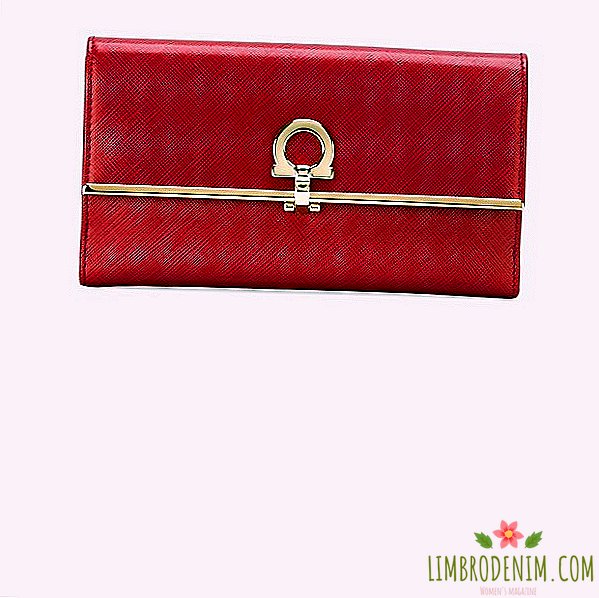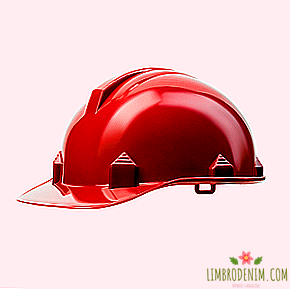Anti-crisis measures: How to spend less and not worry
One year later after a sharp collapse of the ruble we, as far as possible, calmed down and were forced to live more modestly. Most had to come to terms with the inevitable: to postpone large expenses, redistribute the family budget, learn to re-plan their travels or abandon them altogether and avoid spontaneous spending. Building a new relationship with your own wallet is not an easy task, but in the long term grateful. During the year we published materials whose purpose was to help and teach how to survive the crisis with the least stress, and today we have gathered them all in one place. From a useful interview with the economist Irina Yasina on how to handle money in a crisis, to the experiment of our editorial board, in which we tried to dress from head to toe for 1000 rubles.

Economist Irina Yasina on how to manage money in a crisis
Among the huge number of phenomena about which we know nothing, the economy stands out particularly: we do not understand well enough that this is how it works, whether it is worth panicking during a crisis and, most importantly, how to properly manage your finances. Irina Yasina, an economist and human rights activist, daughter of the former Minister of Economy Yevgeny Yasin, helped us find answers to these questions.
read more
How the crisis provokes us to buy with double force
Desperate consumerism in times of crisis is explained, for example, by the fact that the accumulation of capital in a period of inflation seems pointless. Spending ruble stocks now, while they are not even devalued, to buy a car now, before the price for it has risen due to the dollar, to make buckwheat stocks now and gut a roll for winter - this is an approximate train of thought during a panic. And such consumer habits are not exactly Russian.
read more


What happens to stores in a crisis and how it will change our wardrobe
Over the past year, several retailers left the Russian market at once - from New Look and Esprit to River Island, others reduced the number of stores and sales, for example, Topshop and Zara, whose flagship store on Tverskoy ceased to exist. We asked Anna Lebsak-Kleimans, general director of analytical and consulting agency in the fashion industry of Russia Fashion Consulting Group, about who is in danger today, who will stay afloat, what will be the range of stores and why everyone will soon switch to multifunctional things.
read more
Representatives of the mass market, concept stores and luxury about the crisis
The fall of the ruble has changed the market and our buying behavior, and not the best way reflected in the range of stores. All this somehow influenced our style. We asked representatives of Russian stores and brands to talk about how they survive in a crisis, where to shop today and how to spend money on clothes with maximum benefit.
read more


For ages: Clothes, shoes and accessories that are worth investing in a crisis
The crisis could not but affect the culture of consumption. On the one hand, the majority begins to spend money only on basic needs. On the other hand, a new potential appears in the luxury goods market in the world: buyers see the point in investing in expensive basic things that will last for years. We have compiled a list of things, shoes and accessories, which can be worn for years and in the purchase of which it makes sense to invest right now - from reliable shoes to jewelery and watches.
read more
Girls on how the crisis affects the consumption of cosmetics
In a crisis, we are forced to reduce consumption, but we try to do it without prejudice to the usual routine. Let's not hide, spending on cosmetics is a significant part of our expenses. That's exactly why we asked the girls' friends about how they are going to change their care during the crisis and whether they will buy something from the cosmetics in reserve.
read more


5 ways to save, not limiting yourself in anything
There are many options for how to cut costs, and we suggest starting with one of the most expensive items - entertainment. Just remember how much money you last left at the bar and how much it cost you to go to a movie recently. We tell how to organize leisure in such a way as to continue to see friends often and not to deny yourself anything - from food to a beautiful manicure - but to spend on this significantly less money.
read more
The theory of small expenses: How to save money on buying clothes and not to suffer
Because of the dramatic change in the euro and the dollar, many of us a year ago realized that the world will never be the same. There is no more room for Lemaire coats from La Garçonne - buying simple outerwear for 120,000 rubles with any discounts seems insane. Modern realities are such that even a coat from the joint collection of Uniqlo and Lemaire is something for which one has to restrict oneself. We explain how to get out - allow yourself new clothes, but spend a minimum of money on them, or even get them for free.
READ MORE


Experiment: How to update a wardrobe for 1000 rubles
In a crisis, shopping becomes more rational and pragmatic, and the choice of things in stores is more uniform and functional. At the same time, the prospect of going from corner to corner in the mass market in search of cheap fashionable things seems depressing. Another question: how to replenish the wardrobe, spending a minimum of money and buying something universal or, on the contrary, unusual? We decided to see what classroom can be found in the shops in front of the house, discount centers and regional Moscow second-hand stores, and also studied the offers in groups in social networks. The limitation of the experiment was simple: one thousand rubles in hand.
read more
Psychotherapist on how not to get nervous and survive the crisis
The impact of the crisis is not limited to our wallets and bank accounts. The media reports that antidepressants have begun to buy more, and publish articles that teach how to cope with panic, and friends on Facebook ask themselves and each other how to get rid of their obsessive desire to follow the dollar rate every minute. Everyone is in a fever, just to varying degrees, the miners are on strike, their favorite stores are closing. We live in interesting times, and it is unnerving. To slow down and cope with stress will help simple tips psychotherapist Anastasia Rubtsova.
read more

Photo: Farfetch (1,2), Snow Queen, Tag Heuer, Tom Ford, Zara, Shutterstock 1, 2, Topshop





